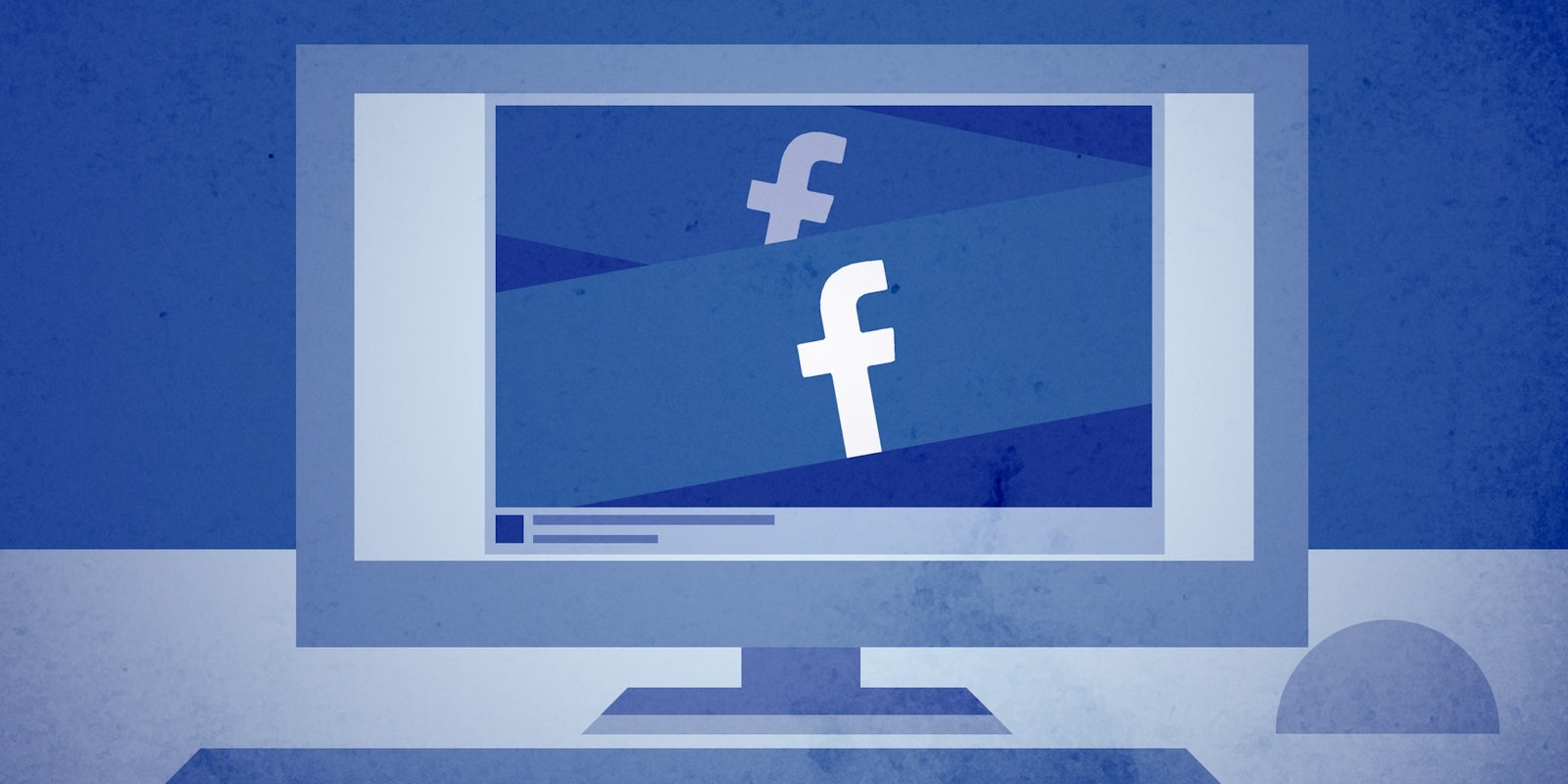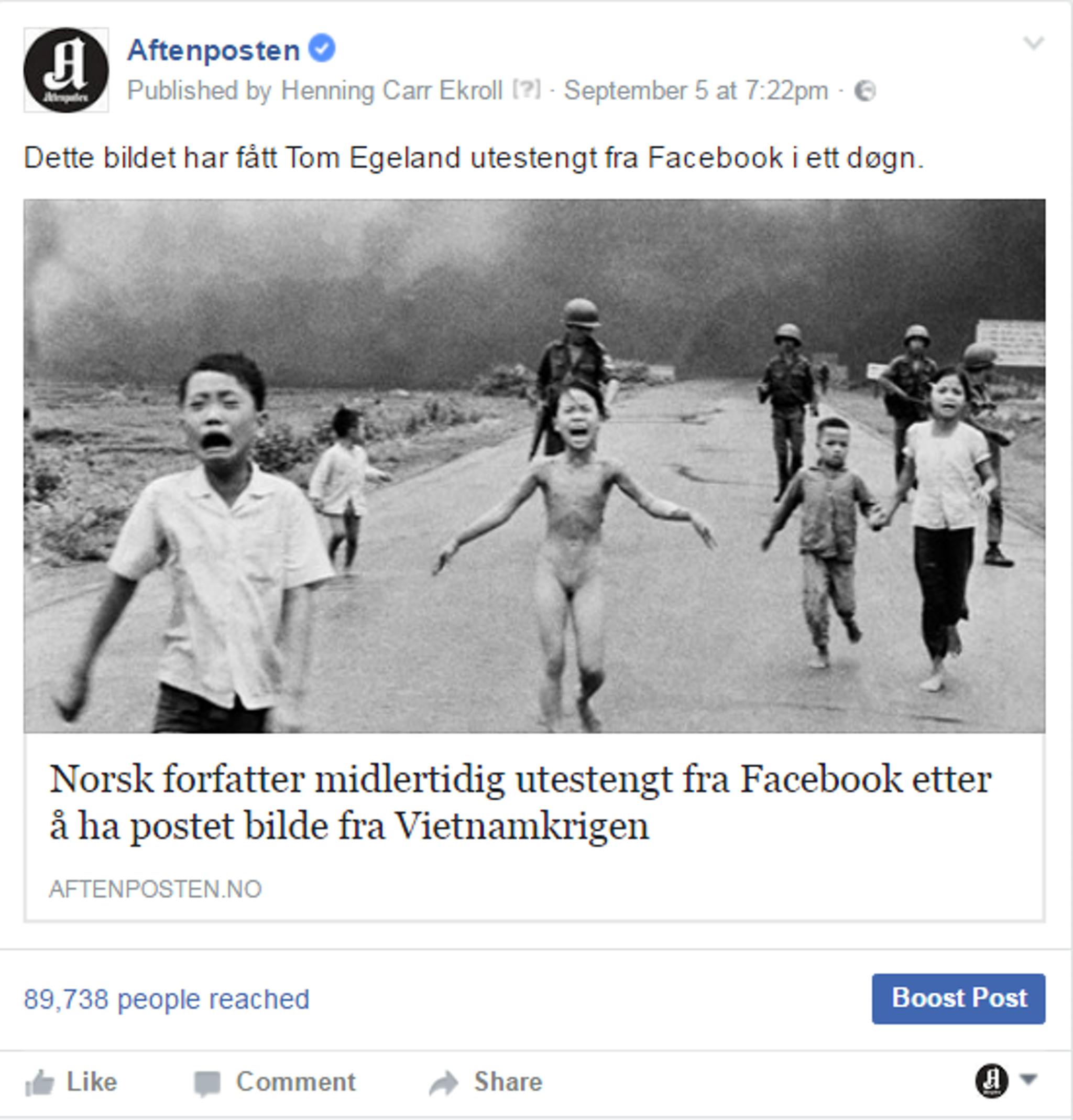“Dear Mark Zuckerberg. I follow you on Facebook, but you don’t know me. I am editor-in-chief of the Norwegian daily newspaper Aftenposten. I am writing this letter to inform you that I shall not comply with your requirement to remove a documentary photography from the Vietnam war made by Nick Ut.
“Not today, and not in the future.”
So begins a front-page open letter by Epsen Egil Hansen, who is publicly challenging the Facebook CEO to stop “abusing your power” as the “world’s most powerful editor” for the company’s recent censorship of multiple posts containing the iconic and infamous “Napalm Girl” photograph that helped expose the horrors of the Vietnam War.
The censorship of the photograph raises key questions about Facebook’s role as the world’s most popular distribution channel for news and other media, particularly in the wake of Zuckerberg’s recent insistence that the social network is “a tech company, not a media company.”
The Pulitzer Prize-winning photo, captured in 1972, depicts a naked 9-year-old girl, Kim Phúc, fleeing U.S. napalm bombs. As Hansen explains, the photograph was included in a Facebook post by Norwegian novelist Tom Egeland about photos that “changed the history of warfare.”
Facebook then deleted the photo from Egeland’s post on the grounds that it contains an image of a naked young girl—despite, as Business Insider points out, a Facebook feature that enables it to place a “graphic content” warning on certain imagery. Egeland then reposted the photograph with the Facebook logo covering her genitals, as a protest against the social network’s inability to distinguish between child pornography and historically important works of journalism. Facebook then suspended Egeland’s account.
Aftenposten then posted the photo itself, which triggered an email from Facebook warning the newspaper to remove the post. Facebook then deleted the post itself.
“Listen, Mark, this is serious,” writes Hansen. “First you create rules that don’t distinguish between child pornography and famous war photographs. Then you practice these rules without allowing space for good judgement. Finally you even censor criticism against and a discussion about the decision—and you punish the person who dares to voice criticism.”
While Zuckerberg may believe that Facebook is a technology company and not in the media business, Hansen offers a compelling argument to the contrary.
“Even for a major player like Aftenposten, Facebook is hard to avoid. In fact we don’t really wish to avoid you, because you are offering us a great channel for distributing our content. We want to reach out with our journalism,” he writes. “However, even though I am editor-in-chief of Norway’s largest newspaper, I have to realize that you are restricting my room for exercising my editorial responsibility. This is what you and your subordinates are doing in this case.
“I think you are abusing your power, and I find it hard to believe that you have thought it through thoroughly.”
Facebook did not immediately respond to our request for comment. In a statement provided to the Guardian, however, a company spokesperson acknowledged “that this photo is iconic,” but challenged that “it’s difficult to create a distinction between allowing a photograph of a nude child in one instance and not others.”
“We try to find the right balance between enabling people to express themselves while maintaining a safe and respectful experience for our global community,” the statement continued. “Our solutions won’t always be perfect, but we will continue to try to improve our policies and the ways in which we apply them.”
Hansen disagrees that Facebook is creating a “safe and respectful experience” for the social network’s more than 1 billion users.
“If you will not distinguish between child pornography and documentary photographs from a war, this will simply promote stupidity and fail to bring human beings closer to each other,” he writes.
“To pretend that it is possible to create common, global rules for what may and what may not be published, only throws dust into peoples’ eyes.”
Update 12:41pm CT, Sept. 9: Facebook says it will reinstate the photo, according to New York Times reporter Mike Issac:
https://twitter.com/MikeIsaac/status/774296075045736448
Contact the author: Andrew Couts, acouts@dailydot.com

